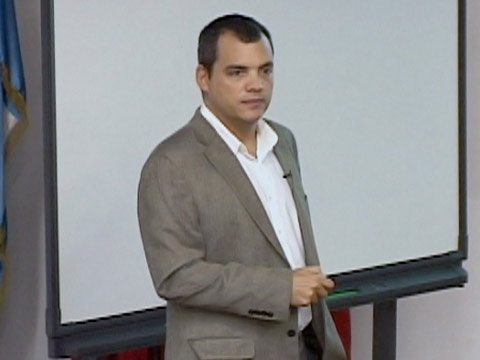About this videoBiotechnology crops are more resistant to herbicides, pests, virus and drought than conventional crops. The myths about biotechnology are hazards to human health, environmental risks, and reduction of biodiversity. Biotech crops increase the rate of productivity and decrease the use of pesticides, and have been more successful in developing countries. Reasonable regulations need to focus on Fast-track recognition process of biotech crops and in treating conventional and biotech crops with the same regulations. |
|
CreditsSustainable and Profitable Farming for Developing Countries | |











